Business
We must develop non-oil sector through enabling environment — LCCI boss
Published
10 years agoon
By
Olu Emmanuel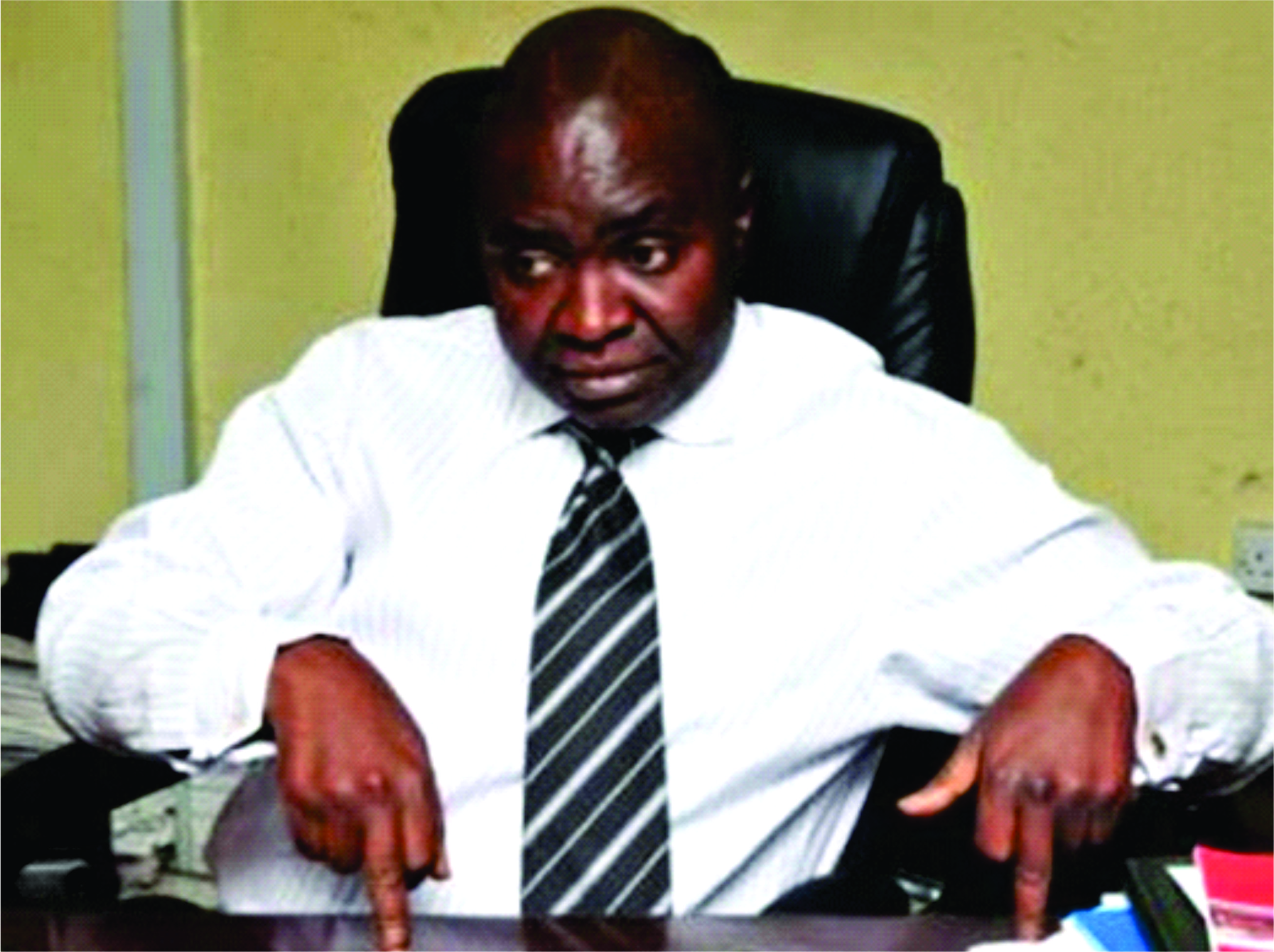
Muda Yusuf is the Director-General of the Lagos Chamber of Commerce and Industry, in this interview with ODUNEWU SEGUN, he explains why diversification of the economy is key. According to him, over dependence on oil will not take Nigeria to the next level. Excerpts:
CONSIDERING the falling oil prices, diversification of the economy has been described as necessary. What is your take on this new initiative?
The imperative of economic diversification cannot be overemphasized, especially with the slump of crude oil price at less than $30 per barrel. This development has profound implications for the fiscal viability of government at all levels. We need to urgently improve the capacity of the Nigerian economy to develop the non-oil sector through the creation of an enabling environment for investors in those sectors.
The key is to improve the productivity and competitiveness of these sectors. We need to tackle issues of cost of doing business; better investment in infrastructure, funding issues, patronage of made in Nigeria products, policies that are investment friendly, strengthening of regulatory institutions, among others.
The collapse of oil price has had a number of implications for the economy, which include sharp drop in government revenue, inability to fund the foreign exchange market, weak capacity of government to fund infrastructure, adverse consequences for the cash flow in the economy, and inability of the many state governments and Ministries, Departments and Agencies to meet their financial obligations to workers and contractors.
All these point to the fact that there is need to stimulate the economy. It is noteworthy that the 2016 budget and recent monetary policy actions were geared towards stimulating growth by improving liquidity in the banking system and stimulating the economy. Monetary Policy Rate was reduced from 13 per cent to 11 per cent, so was the cash reserve requirements from 25 per cent to 20 per cent. But the foreign exchange policies and various exchange control measures continue to impact investments adversely. There is therefore need to relax the exchange controls to accelerate the process of diversification and growth.
One of the measures introduced by the present administration to shore up the Naira is the forex restriction and pegging of the naira to an official rate of N196/$1. What does this mean for Nigerians and the economy?
The demand pressure on forex has become so much that some extreme measures have to be taken by the CBN. The major problem has been the lack of alignment of the exchange rate with the fundamentals of the foreign exchange market, especially the demand and supply fundamentals. Until the appropriate adjustment is made, we will continue to face this problem. The exchange rate needs to be adjusted close the equilibrium for liquidity and stability to return to the market. One of the issues is that there is a list of 41 items excluded from access to forex. Many of the products on the list of the 41 products are intermediate goods which are critical inputs for many manufacturing firms, as well as other critical sectors of the economy. The exclusion has led to job losses as many factories could not access foreign exchange to import their raw materials.
The list is prone to multiple definitions and discretionary interpretations by agencies and institutions responsible for implementation. The HS codes (harmonised commodity description and coding system) of the items are not indicated in the CBN circular. Discretionary interpretations create room for corruption.
The alternative forex markets parallel market and the Bureau De Change outlets are not deep enough to meet the demand of the essential intermediate products on the exclusion list. Therefore the exclusion of the items from the forex market is as good as import prohibition.
So the policy measure has led to an unprecedented widening of exchange differentials between the official forex window and the parallel markets. The inevitable consequence will be rampant round tripping of foreign exchange, which the CBN has limited capacity to curb.
I think the CBN’s approach to administrative forex allocation is prone to abuse and considerable corruption. It could only be likened to the import licensing era of the early eighties.
ALSO SEE: CBN’s policies downside risks to Nigeria’s credit profile – Fitch
What do you make of the 2016 national budget as presented by President Muhammadu Buhari?
The spending priorities in favour of capital projects are laudable. This implies better focus on the current high and alarming deficit in the nation’s infrastructure. The capital allocation moved up to 30 per cent of total allocation as against 15 per cent in the 2015 budget. Infrastructure is critical for job creation and economic diversification.
The thrust of the 2016 budget is stimulation of the economy, infrastructure development and job creation. The appropriations reflect this emphasis. We have a capital allocation of N1.8tn out of a total budget of N6.08tn. Capital spending proposal is 30 per cent of total budget as against 15 per cent we had in the 2015 budget. But we still have to wait for the details and implementation framework to assess the sustainability of the various propositions and make informed commentary on some key aspects of the budget.
Some people have raised eyebrows over the amount of money that Nigeria will be spending on servicing debts. Do you agree with them?
The debt service provision of N1.3tn is quite high. This is 75 per cent of the capital budget allocation, 35 per cent of revenue and 22 per cent of total budget. We need to worry about the resources we are committing to debt servicing, especially when there is very little to show for these debts. Of course outstanding obligations must be settled, but going forward, there is need to review our debt management strategy to reduce the burden of debt servicing on the economy. The debt profile is gradually moving close to the unsustainable threshold.
I believe the exchange rate assumption of N197 to the dollar should be reviewed. It is not in tune with the current realities of the foreign exchange market. It will understate the revenue accruable from the foreign exchange surplus from the Central Bank of Nigeria to the federation account.
The promise by the President in his budget address to review the current forex policies and exchange controls of the CBN is laudable. Such review is long overdue, having regard to the dislocations that the exchange controls have caused domestic and foreign investors.
Do you think the budget addresses the problems in the petroleum sector?
The President alluded to the petroleum downstream sector in a rather equivocal manner. There was no clear pronouncement on whether the petroleum downstream sector will be deregulated or not. There was a mention of a review of pricing template by the Petroleum Products Pricing Regulatory Agency. We await the details of the template and what implications it will have for the private investors in the petroleum downstream sector. But let me reiterate that the downstream sector of the petroleum industry needs to be fully deregulated in the overall interest of the Nigerian economy and the change agenda of the present administration.
The decision to review the funding models for Joint Venture cash calls is welcome and commendable. This will improve the funding of the upstream operations in the oil and gas sector under the joint venture arrangements. Output and productivity will definitely be impacted positively.
ALSO SEE: Afrinvest projects 25% adjustment of the naira
The CBN was accused by a former Minister of Education, ObyEzekwesili, of fixing the exchange rate, what is the implication of this?
I agree with her opinion. What the CBN has done is to fix exchange rate and allocate the foreign exchange administratively. This policy option has created a major liquidity crisis in the foreign exchange market, with a huge backlog of unmet forex demand. The situation has created credibility crisis for many investors who have foreign financial obligations to settle. The airlines are also not able to remit their proceeds as at when due. Many industries have challenges of sourcing raw materials because of the lack of forex. There is a whole range of adverse consequences of the current forex policy and exchange controls.
With many states unable to pay workers’ salaries and build infrastructure and roads, what investment areas should they be looking at since the unitary system of government we practice still puts so much power in the hands of the Federal Government (solid minerals, for example)?
There is need to improve access of the small holder farmers to market for agricultural sector productivity to improve. Government should put in place an effective and sustainable policy of guaranteed minimum price for agricultural products. We need to improve the linkage between agricultural sector and the industrial sector. Storage capacity needs to improve to minimize post-harvest loses.
You may like
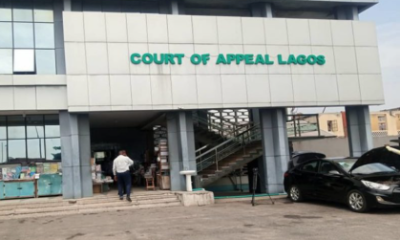

Appeal Court nullifies Emefiele’s asset forfeiture, Orders retrial


Naira gains 1.28% in official market in May amid oil price risks, currency volatility
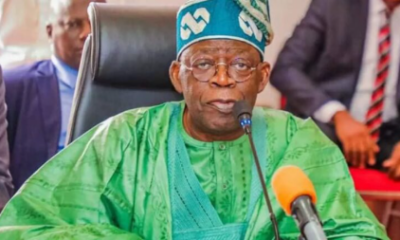

Tinubu: Diaspora APC chieftain tasks local banks on reforms
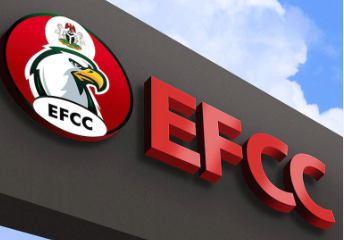

Alleged corruption: EFCC witness details wow Emefiele allegedly received $17.1 million in cash
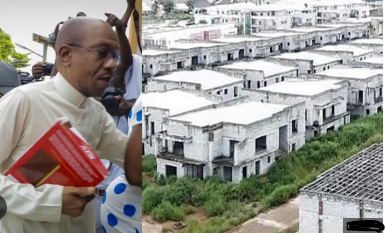

FG to auction 753 housing units forfeited by Ex-CBN Gov. Emefiele in Abuja
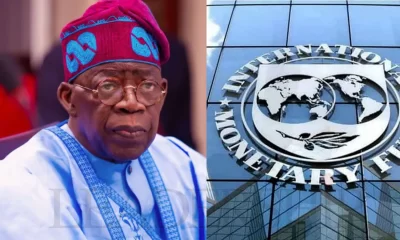

Nigeria’s debt rises to N74.38trn, $44.9bn despite IMF loan repayment
Trending

 Entertainment1 week ago
Entertainment1 week agoSinger Simi sparks debate after calling for death penalty for rapists

 Business1 week ago
Business1 week agoNaira mixed across markets as official window dips, parallel market strengthens

 Business1 week ago
Business1 week agoNaira hits N1,337 against Dollar amid positive market sentiment

 Football1 week ago
Football1 week agoUCL Playoff: Gordon scores four as Newcastle thrash Qarabağ 6-1

 Entertainment1 week ago
Entertainment1 week agoTems, Burna Boy set new African record with most entries on Billboard hot 100

 Entertainment6 days ago
Entertainment6 days agoSinger Simi faces backlash after TikToker admits to false rape allegation

 Latest1 week ago
Latest1 week agoLegal constraints, not connectivity, delay electronic results — Igini

 Latest1 week ago
Latest1 week agoTinubu defends electoral reform, downplays mandatory real-time upload

